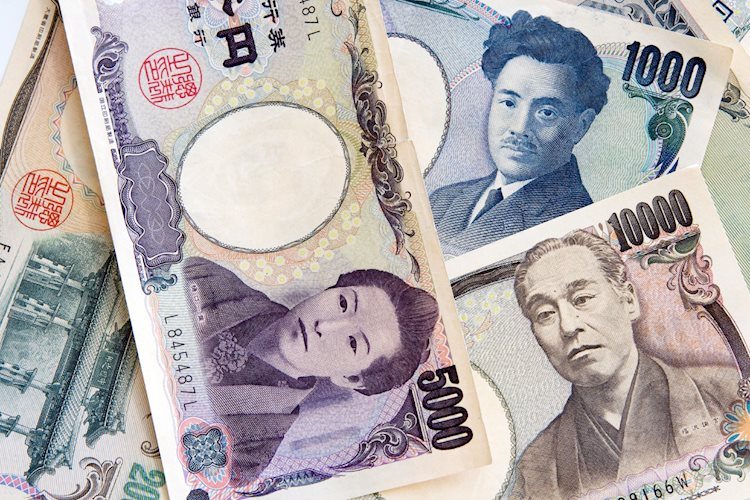The USD/JPY pair remained deeply negative on Friday, with the US Dollar weakening against its major counterparts following the release of the July jobs report. Nonfarm Payrolls in the US increased by 114,000, falling short of the market expectation of 175,000. This led to a weekly slide for USD/JPY, with the pair trading near 147.80, down 1% on a daily basis, and hitting its weakest level since March.
The Japanese Yen recorded a strong performance against major currencies this week, with the strongest gains seen against the British Pound. This is shown in the percentage change table of the JPY against the USD, EUR, GBP, CAD, AUD, NZD, and CHF. The strengthening of the JPY against the USD reflects the broader weakness in the US Dollar following the disappointing jobs report.
The disappointing US jobs report caused broad-based selling pressure around the US Dollar, leading to a decline in USD/JPY in the early American session. The US Dollar Index posted losses, down 0.85% at 103.46. The Bureau of Labor Statistics reported a rise in Nonfarm Payrolls in July to 114,000, lower than market expectations. Additionally, June’s numbers were revised downward, and the Unemployment Rate increased to 4.3% from 4.2% in June.
Earlier in the week, the Bank of Japan surprised markets by raising its policy rate by 15 basis points, fueling a rally in the Japanese Yen. This move contributed to the decline in USD/JPY by over 3.5% on a weekly basis. The performance of the JPY is influenced by various factors, including the Bank of Japan’s policies, the difference between Japanese and US bond yields, and risk sentiment among traders.
The Bank of Japan plays a significant role in determining the value of the Japanese Yen through its monetary policies and interventions in the currency markets. The current ultra-loose monetary policy adopted by the BoJ has led to the depreciation of the Yen against its major currency peers. This depreciation has been exacerbated by the policy divergence between the BoJ and other central banks, particularly the US Federal Reserve.
The Japanese Yen is often seen as a safe-haven investment during times of market uncertainty, as investors tend to seek its stability and reliability. This perception of the JPY as a safe-haven currency can strengthen its value against riskier currencies during turbulent market conditions. Overall, the performance of the Japanese Yen is influenced by a combination of economic factors, central bank policies, and market sentiment.











